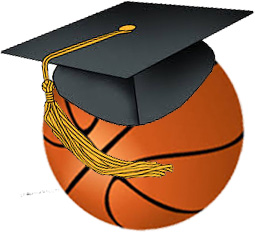


© 2014 Robert McKercher. All rights reserved.

Lack of Bachelor's Degree Causes USF to Take Back Its Rose
^ That's a Reality TV Reference
So, the University of South Florida rescinded its offer to Steve Masiello to be the Bulls’ next men’s basketball head coach because of resume inaccuracies. It turns out he never received the degree from the University of Kentucky he claimed to have earned. Consequently, Masiello’s current employer, Manhattan College, has placed him on administrative leave while “reviewing his degree status.” In most professional settings, lying on a resume would be sufficient rationale for USF’s and Manhattan’s actions, and it would likely be the end of the story. But because this is college athletics, naturally, there’s controversy. You see, both USF and Manhattan have policies requiring its athletic coaches to have four-year degrees, and much of the commentary on this story by journalists and in internet forums has asserted that a bachelor’s degree is irrelevant as a qualification for coaching basketball.
For example, while guest hosting the Dan Patrick radio show March 27, Chris Mannix of Sports Illustrated and NBC Sports made that argument that a basketball coach isn’t an educator in the same sense as a professor. I agree that a degree in chemistry or history may not have direct applicability to diagramming plays and teaching jump shot mechanics; however, I would argue that coaching IS comparable to being a manager in a university department like housing or the bursar’s office. One would be hard pressed to find a management position at an academic institution, or most businesses for that matter, that doesn’t possess some kind of degree requirement as a minimum qualification.

But really, that’s just semantic quibbling. There is a fundamental, philosophical reason why college coaches should have academic degrees whether or not they are “educators.” Yes, college athletics is big business and some (perhaps many) players view an athletic scholarship as an internship for the pros, but the NCAA, schools, athletic directors, coaches, and players continue to stress the “student” part of student athlete.
Coaches are disproportionately responsible for their players’ academic success compared to faculty or administrators. The Northwestern University football players who recently sued for the right to organize a union estimated they spend 50-60 hours a week on football related activities – far more time than they spend interacting with teachers. The athletic department provides student athletes with tutors, academic advisors, and organized study halls. The NCAA penalizes programs by denying post-season eligibility to teams with poor Academic Progress Rates. Clearly, the message is that education is important. By definition, coaches are leaders and mentors, authority figures who have to lead by example. A coach with a degree personifies the message. Without a degree, a coach’s insistence that players study, follow the rules, and prepare for their post-athletics future rings hollow and can be easily ignored. How can the grown-ups expect kids to take education seriously when their leader treats his own academic credentials with a wink and nod?
- Fox Sports (2014) “USF ends pursuit of Masiello over resument inaccuracies.” Retrieved March 26, 2014 from http://msn.foxsports.com/florida/story/usf-hoops-coaching-candidate-steve-masiello-didn-t-earn-degree-032614.
- Fox Sports (2014) “Revolutionary ruling: Fed agency says Northwestern players can unionize.” Retrieved March 26, 2014 from http://msn.foxsports.com/college-football/story/federal-agency-gives-college-football-players-at-northwestern-university-right-unionize-032614.
- NCAA (2013) Academic Progress Rate (APR). Web page. Retrieved March 27, 2014 from http://www.ncaa.org/about/resources/research/academic-progress-rate-apr.